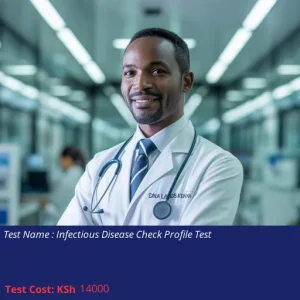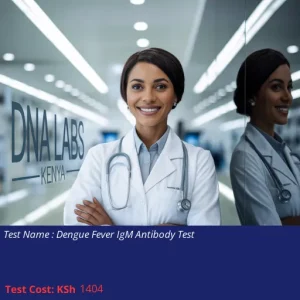Echovirus Antibodies Panel IgG IgM Test
Introduction to the Echovirus Antibodies Panel IgG IgM Test
The Echovirus Antibodies Panel IgG IgM Test is a vital diagnostic tool used to detect the presence of antibodies against echoviruses in the bloodstream. Echoviruses are a group of viruses that can cause a variety of illnesses, particularly affecting the central nervous system and cardiac health. Understanding whether you have been exposed to an echovirus is crucial for timely medical intervention.
What the Test Measures
This test measures the levels of two types of antibodies—IgG and IgM—produced by the immune system in response to an echovirus infection. IgM antibodies indicate a recent infection, while IgG antibodies suggest past exposure or infection.
Who Should Consider This Test?
Individuals experiencing symptoms such as:
- Fever
- Headaches
- Muscle pain
- Neurological symptoms (e.g., confusion, seizures)
- Cardiac issues
Those with risk factors, including weakened immune systems or exposure to infected individuals, should also consider this test.
Benefits of Taking the Test
- Early detection of echovirus infections
- Guides treatment options for affected individuals
- Helps in monitoring the immune response to the virus
Understanding Your Results
Results will indicate the presence of IgM and IgG antibodies. A positive IgM result typically suggests a recent infection, while a positive IgG result indicates past exposure. It is important to discuss your results with your healthcare provider to determine the best course of action.
Test Pricing
| Test Name | Discount Price | Regular Price |
|---|---|---|
| Echovirus Antibodies Panel IgG IgM Test | 10998 KSh | 12220 KSh |
Book Your Test Today
We have branches across all major cities in Kenya, including Nairobi, Mombasa, and Kisumu, and offer home sample collection services for your convenience. Don’t wait—take charge of your health today!
To book the Echovirus Antibodies Panel IgG IgM Test, call or WhatsApp us at +254711564616.
Turnaround time for results is approximately 1 week, and no special preparation is required prior to the test. Samples should be collected as 2 mL (1 mL min.) serum from 1 SST, shipped refrigerated or frozen.






